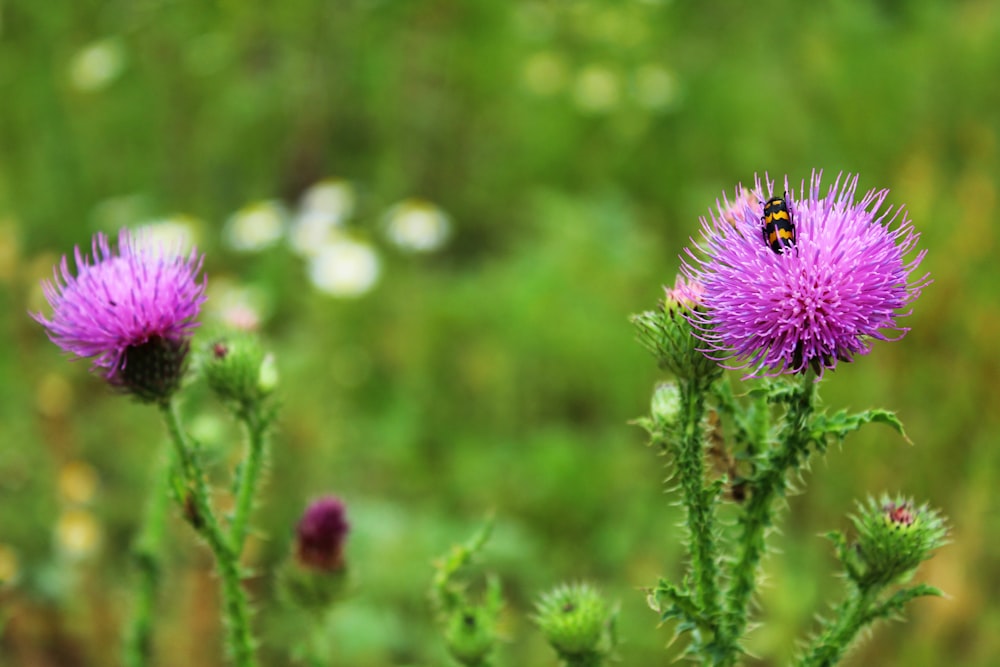
What is Blessed Thistle? How is it Different From Milk Thistle?
Share
Blessed Thistle is a plant native to Mediterranean countries and identified by its dandelion-like flower and leaves. Traditionally, people have used this herb to combat various coughs, colds, fever, and bacterial infections. It has also played a significant role in fighting the ill effects of the bubonic plague during the Middle Ages.
Benefits of Blessed Thistle:
Blessed Thistle is typically brewed by steeping the leaves in hot water. It is beneficial for treating loss of appetite and improve digestion. In addition to protecting and enhancing your immune system, it can encourage the consistent flow of milk supply in breastfeeding mothers.

Blessed Thistle is a great herbal remedy for new mothers while breastfeeding. We do not recommend the consumption of any Blessed Thistle supplement for pregnant mothers. If you are currently on any medication, consult with your doctor before consuming Blessed Thistle.

They are not the same. Although used for promoting milk supply in lactating mothers, Milk Thistle and Blessed Thistle should not be confused as the same. Milk Thistle is a different plant that is prickly with very distinct purple flowers with white veins that run all over its leaves.
Blessed Thistle is effective for promoting milk supply in breastfeeding women. However, there are varying benefits to both herbs.

Fenugreek is a herb that not only boasts medicinal properties but has also been used for ages in Asian countries for culinary purposes. Simultaneously, they discovered that the herb was efficient in increasing milk supply in nursing mothers.
Blessed Thistle is a widely recognized herbal remedy touted by herbalists for improving appetites and digestion. This herb also possesses properties that encourage milk supply in lactating mothers.
Even though both herbs have similar properties, they should not be confused. They are entirely different but can be used together to increase breast milk supply. Fenugreek and Blessed Thistle is one of the most commonly used combinations of supplements to increase breast milk supply.
 The Benefits of Mama's Select Blessed Thistle:
The Benefits of Mama's Select Blessed Thistle:
After delivery, some women experience blocked milk ducts that need a gentle push in the right direction. Mama’s Select Blessed Thistle works wonders in providing a natural option to promote milk supply. Many women experience a noticeable difference within days of consuming this breastfeeding supplement.
In addition to improving breast milk supply, our gentle veggie capsules provide the following added benefits:
- Relief from Indigestion - Our formula is gentle and safe to treat improper digestion and improve metabolism.
- Reduced Gas - Studies have shown that Blessed Thistle can reduce flatulence and leave you less bloated and gassy.
- Upset Stomach - Mama’s Select Blessed Thistle is formulated with the highest quality ingredients in an allergy-free capsule. Our herb’s natural benefits can help with upset stomachs and gently provide the necessary relief.
- Constipation - Stress and processed foods are major contributors to chronic constipation. Thankfully, nature has its answers to these situations. Blessed Thistle has been used as a natural and gentle laxative that improves digestion and encourages bowel movement.
Potential Side of Effects of Consuming Blessed Thistle
Blessed Thistle is considered safe when consumed in capsules or as tea. The concentration of the herb can be higher when consumed as a tea which can cause some nausea, cramping, and upset stomach. It is advisable to consume capsules because of the heavily regulated portions. Consult with your doctor before the consumption of any supplement.
When to Consume:
We do not recommend consuming Blessed Thistle while pregnant. Blessed Thistle is a great addition to add to your breastfeeding vitamin nutrition to help with increased milk supply. Please consult your doctor before taking any new vitamins or supplements.

